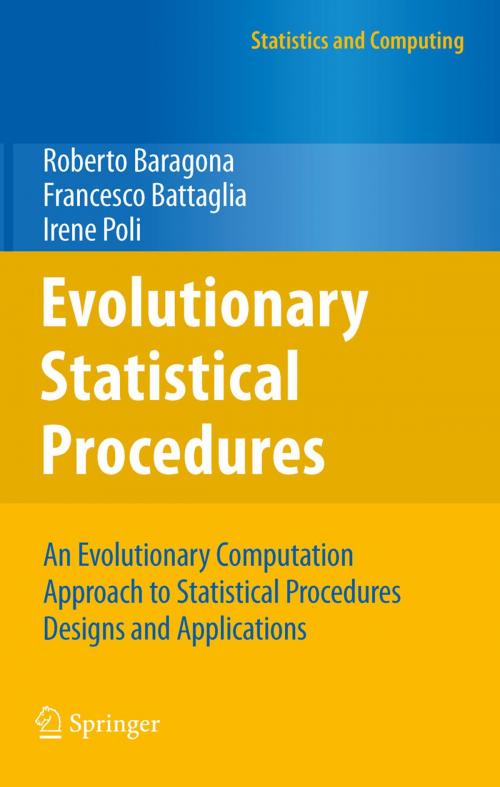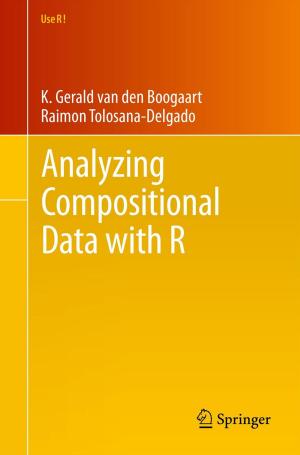Evolutionary Statistical Procedures
An Evolutionary Computation Approach to Statistical Procedures Designs and Applications
Nonfiction, Computers, Advanced Computing, Engineering, Computer Vision, Application Software, General Computing| Author: | Roberto Baragona, Francesco Battaglia, Irene Poli | ISBN: | 9783642162183 |
| Publisher: | Springer Berlin Heidelberg | Publication: | January 3, 2011 |
| Imprint: | Springer | Language: | English |
| Author: | Roberto Baragona, Francesco Battaglia, Irene Poli |
| ISBN: | 9783642162183 |
| Publisher: | Springer Berlin Heidelberg |
| Publication: | January 3, 2011 |
| Imprint: | Springer |
| Language: | English |
This proposed text appears to be a good introduction to evolutionary computation for use in applied statistics research. The authors draw from a vast base of knowledge about the current literature in both the design of evolutionary algorithms and statistical techniques. Modern statistical research is on the threshold of solving increasingly complex problems in high dimensions, and the generalization of its methodology to parameters whose estimators do not follow mathematically simple distributions is underway. Many of these challenges involve optimizing functions for which analytic solutions are infeasible. Evolutionary algorithms represent a powerful and easily understood means of approximating the optimum value in a variety of settings. The proposed text seeks to guide readers through the crucial issues of optimization problems in statistical settings and the implementation of tailored methods (including both stand-alone evolutionary algorithms and hybrid crosses of these procedures with standard statistical algorithms like Metropolis-Hastings) in a variety of applications. This book would serve as an excellent reference work for statistical researchers at an advanced graduate level or beyond, particularly those with a strong background in computer science.
This proposed text appears to be a good introduction to evolutionary computation for use in applied statistics research. The authors draw from a vast base of knowledge about the current literature in both the design of evolutionary algorithms and statistical techniques. Modern statistical research is on the threshold of solving increasingly complex problems in high dimensions, and the generalization of its methodology to parameters whose estimators do not follow mathematically simple distributions is underway. Many of these challenges involve optimizing functions for which analytic solutions are infeasible. Evolutionary algorithms represent a powerful and easily understood means of approximating the optimum value in a variety of settings. The proposed text seeks to guide readers through the crucial issues of optimization problems in statistical settings and the implementation of tailored methods (including both stand-alone evolutionary algorithms and hybrid crosses of these procedures with standard statistical algorithms like Metropolis-Hastings) in a variety of applications. This book would serve as an excellent reference work for statistical researchers at an advanced graduate level or beyond, particularly those with a strong background in computer science.















